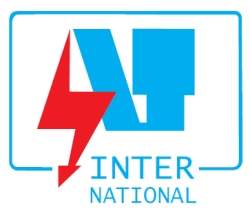AT Communication has recently updated its Tactical Intercom System. The Tactical Intercom System is a highly configurable and modular intercom system suited to a range of wired and wireless intercom applications. Examples of both military and civilian applications include military vehicles, emergency services, patrol boats and dismounted squads.
In vehicular applications, the AT Tactical Intercom System’s compact design allows intercom users to have access to up to four tactical radios as well as other crew members. Crew can be in the vehicle or dismounted via the wireless intercom option. The system’s robust hardware design and system architecture is suitable for military command, fighting and support vehicles, tracked or wheeled, armoured or soft-skinned.
In military applications, the AT Tactical Intercom System is a ready replacement for aging systems. It is scalable to meet varying demands and provides crisp, clear, full duplex audio amongst crew members. It has a range of radio interface options, from basic PTT to full remote control of the radios. Users are provided with the exact functionality required and not burdened with sophisticated commands and controls found on competitive systems.
In civilian and emergency service applications, the system modules are compact, robust, easy to use and designed to be operated with minimal training.
The systems are based on modular architecture and can be configured in many ways to suit the requirement and consequently cover a wide range of intercom applications which can be augmented with specialist modules to add functionality if needed;
- Entry System is for small platforms with two, three or four crew and one radio
- Medium System is suitable for platforms supporting two to four radios, four to six crew members and crew who operate both inside and outside the platform. It has a range of options, wireless intercom, power distribution, remote operation and advanced functional control of radios
- Enhanced System is aimed at the large command platforms that can support between two and eight radios, four to eight crew members and crew who are required to be versatile and operate both inside and outside the platform. It has a range of options, wireless intercom, power distribution, advanced functional control of installed radios and remote operation
The medium and enhanced systems are projected for the wide range of platform options and these will include the personnel carriers, command structures and main site requirements. The ability to configure the system to exactly what is required, enhances the man-machine interface and operational efficiency whilst maintaining costs. Both systems can be augmented with data via ethernet routed to the positions that require it. One of the key improvements of the Tactical Intercom System is the ability for the individual modules to be maintained at workshop level. This makes the AT Tactical Intercom system a very economical solution, considering total cost of ownership.
For squad applications, wireless personal communicators (WPC) and a wireless base unit (BU) can be configured to give a wireless only variant which can be expanded to interconnect to vehicular systems. Squad members wear a wireless belt unit which interfaces with commonly available audio headsets to provide hands-free full duplex intercom operation, or, with remote PTT option depending on the application.
A vibration mode can be enabled for covert operations to alert to incoming calls. The wireless system through the base unit can provide connectivity to Portable Tactical HF, VHF and UHF transceivers. This capability requires an upgrade to the WPC as it is not a standard feature.
For further information or to discuss your application, please do not hesitate to contact us.
System benefits at a glance:
- Scalable – all versions Entry, Medium and Enhanced are derived from the same set of core modules
- Versatile – can be adapted to the users’ requirements
- Flexible – can be installed in a wide range of vehicular and static locations
- Cost effective in procurement – users adjust the system to suit, and only pay for what they require so there is no inefficient functionality
- Cost effective in installation – the small volumetric size of the system allows for installation in confined spaces
- Installation – easy to design installation and cost of installation aspects minimised in platforms
- Cost of ownership – simple local workshop repair by technicians
- Future proof technology – boards will only require either component or software upgrades
- Ease of use – simple to use, all controls are for essential functionality so no expensive training courses required
- Maintenance – no maintenance training required, user manual explicit for both first line and workshop level, spare boards held at workshop
- Expandable – options can be added to any of the systems, up to 15 IUUs can be placed on one ‘daisy chain’ and up to ten RAUs on one ‘daisy chain’
- Architecture options – standard ‘daisy chain’ or ‘ring’ connectivity

